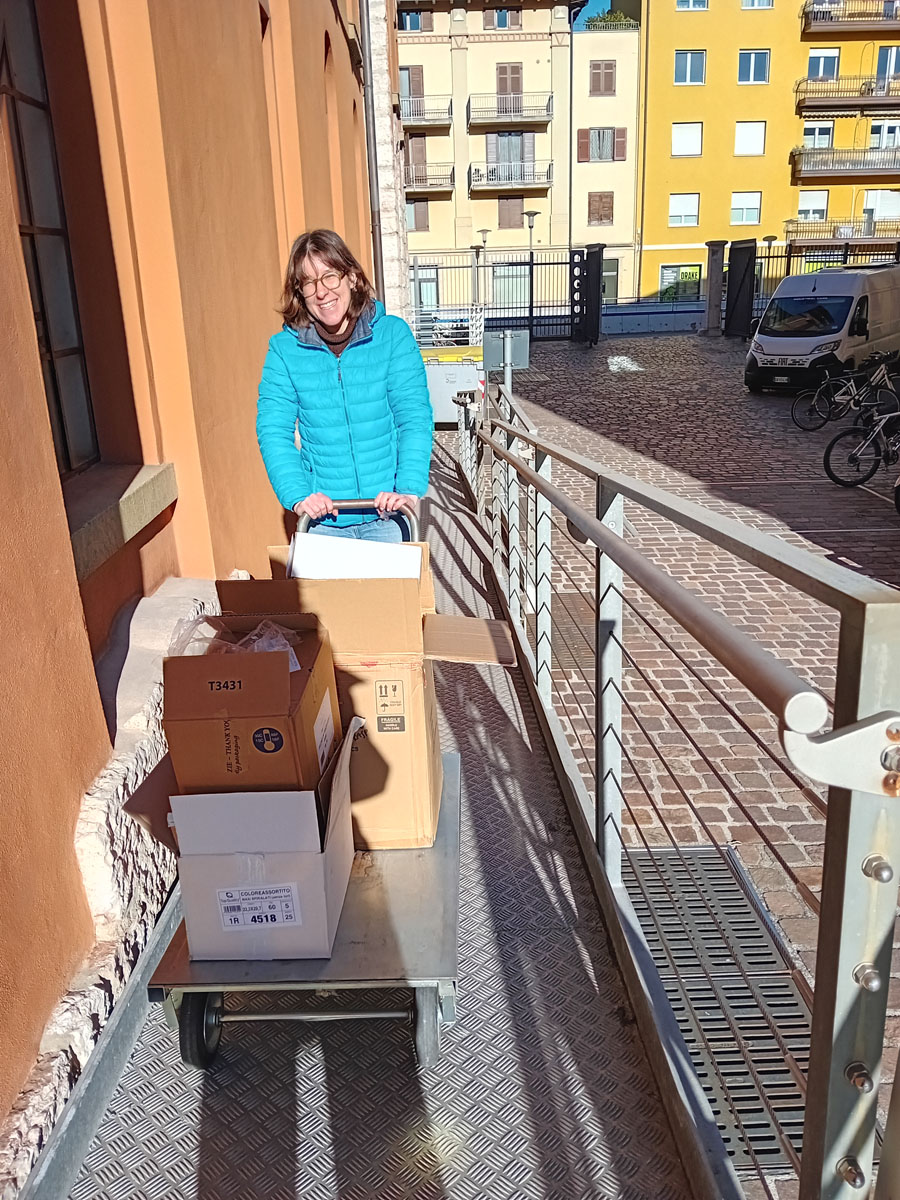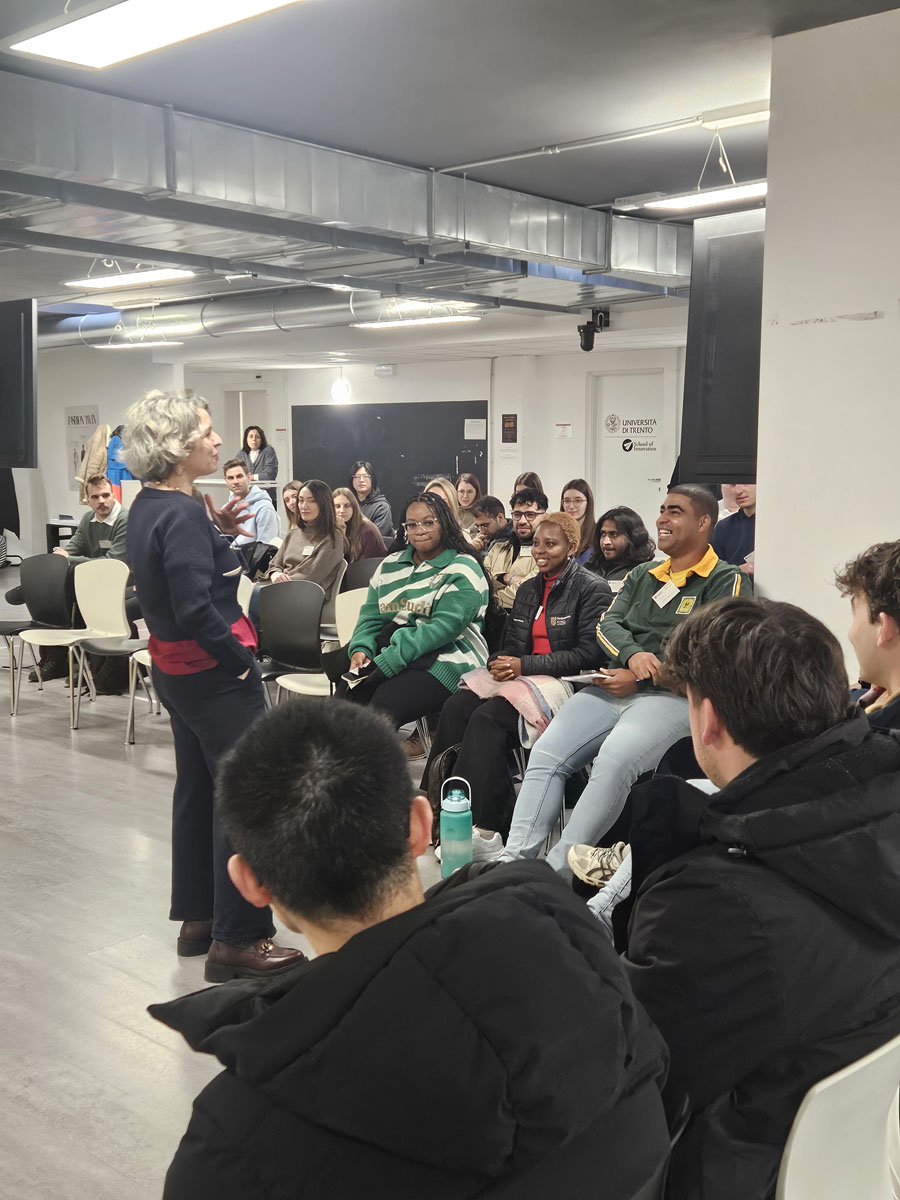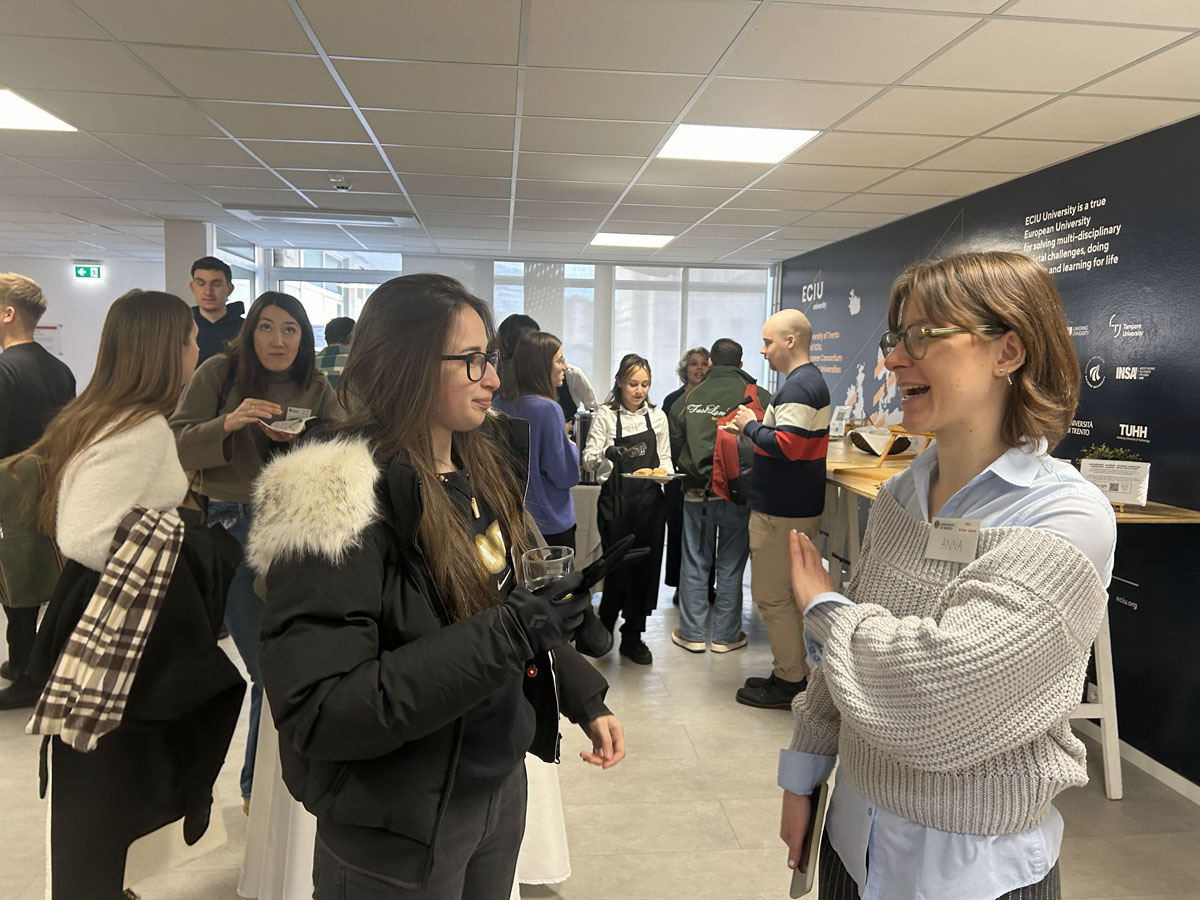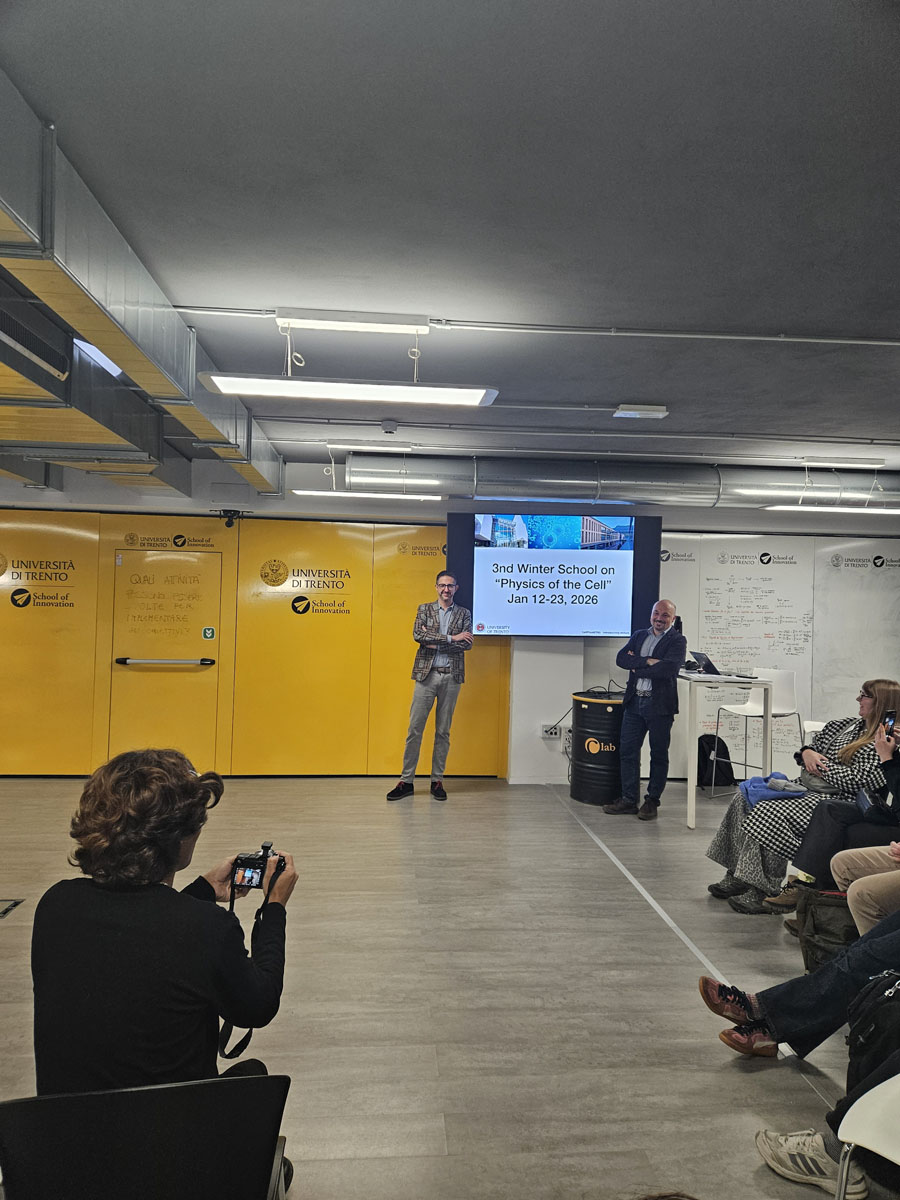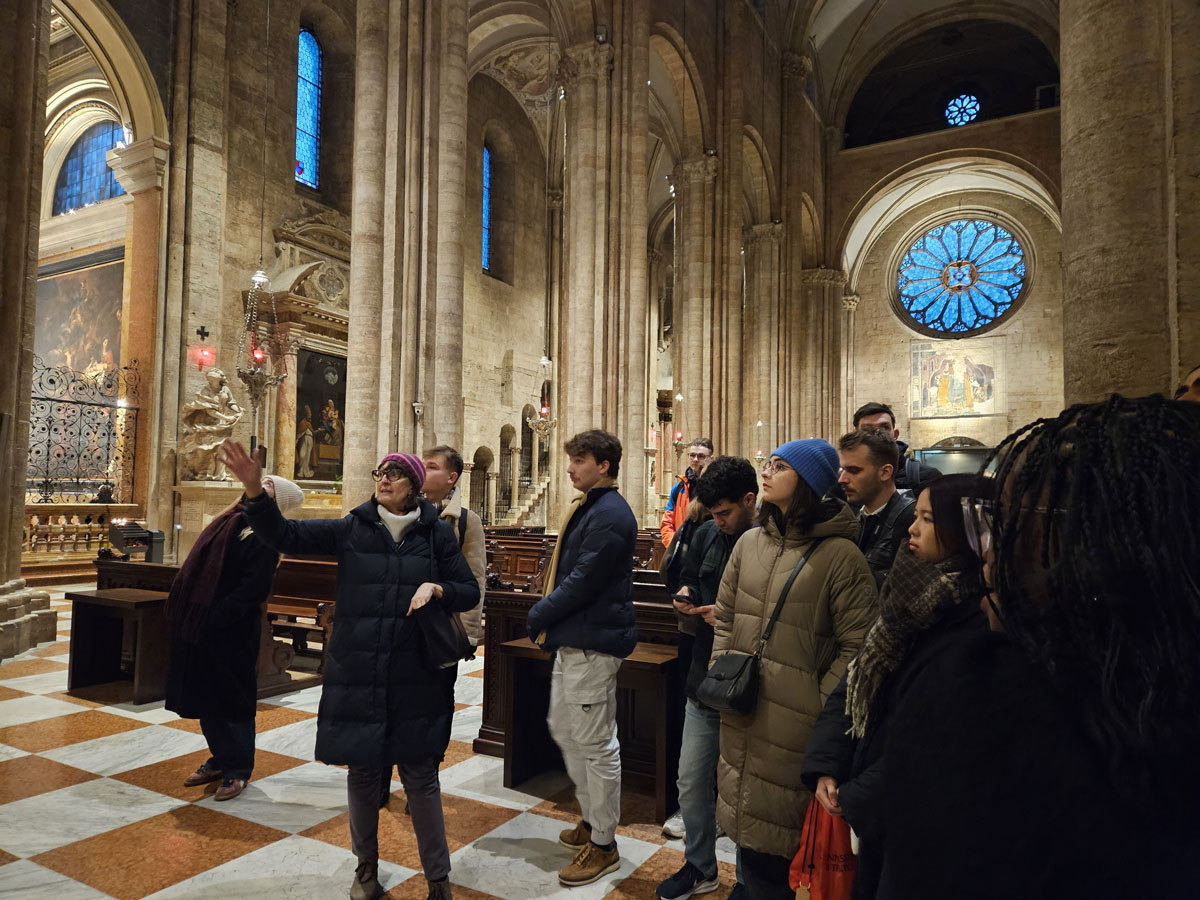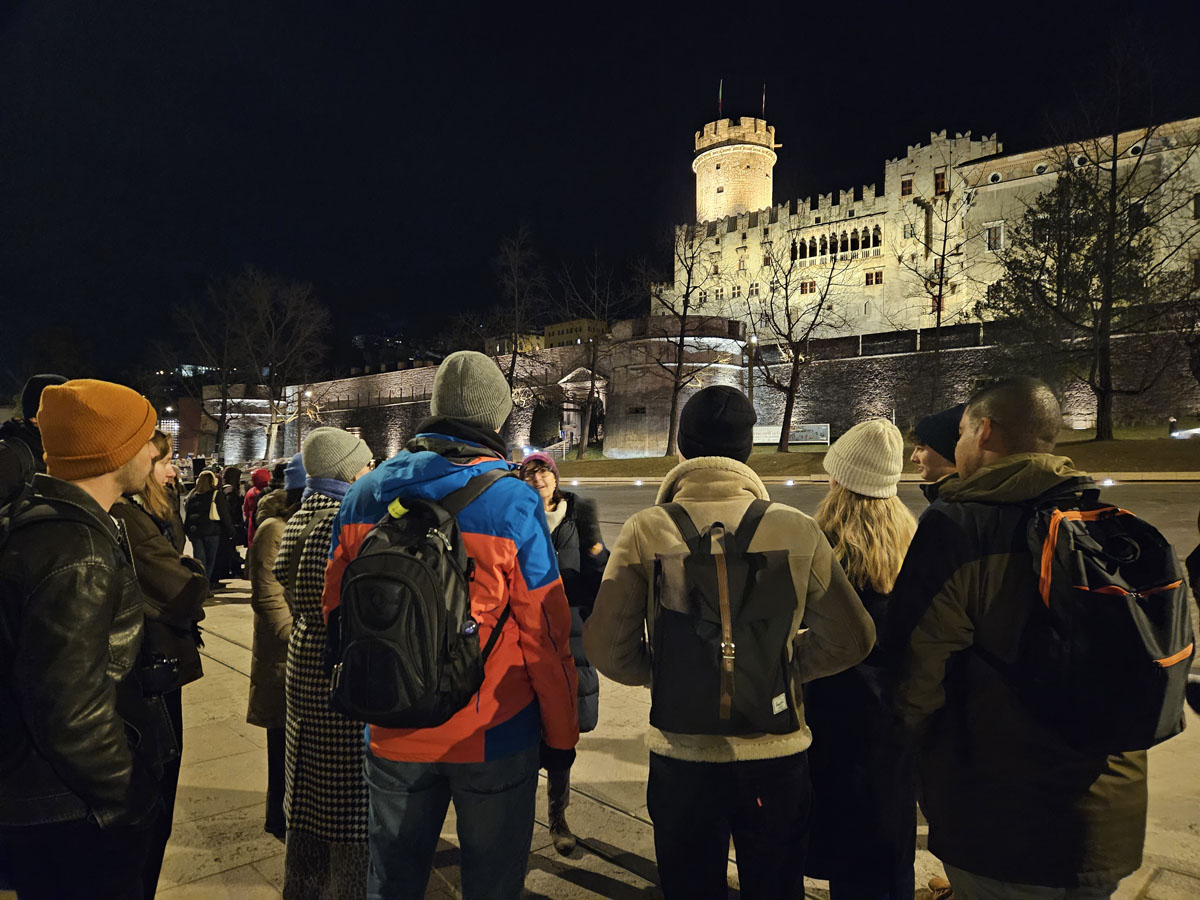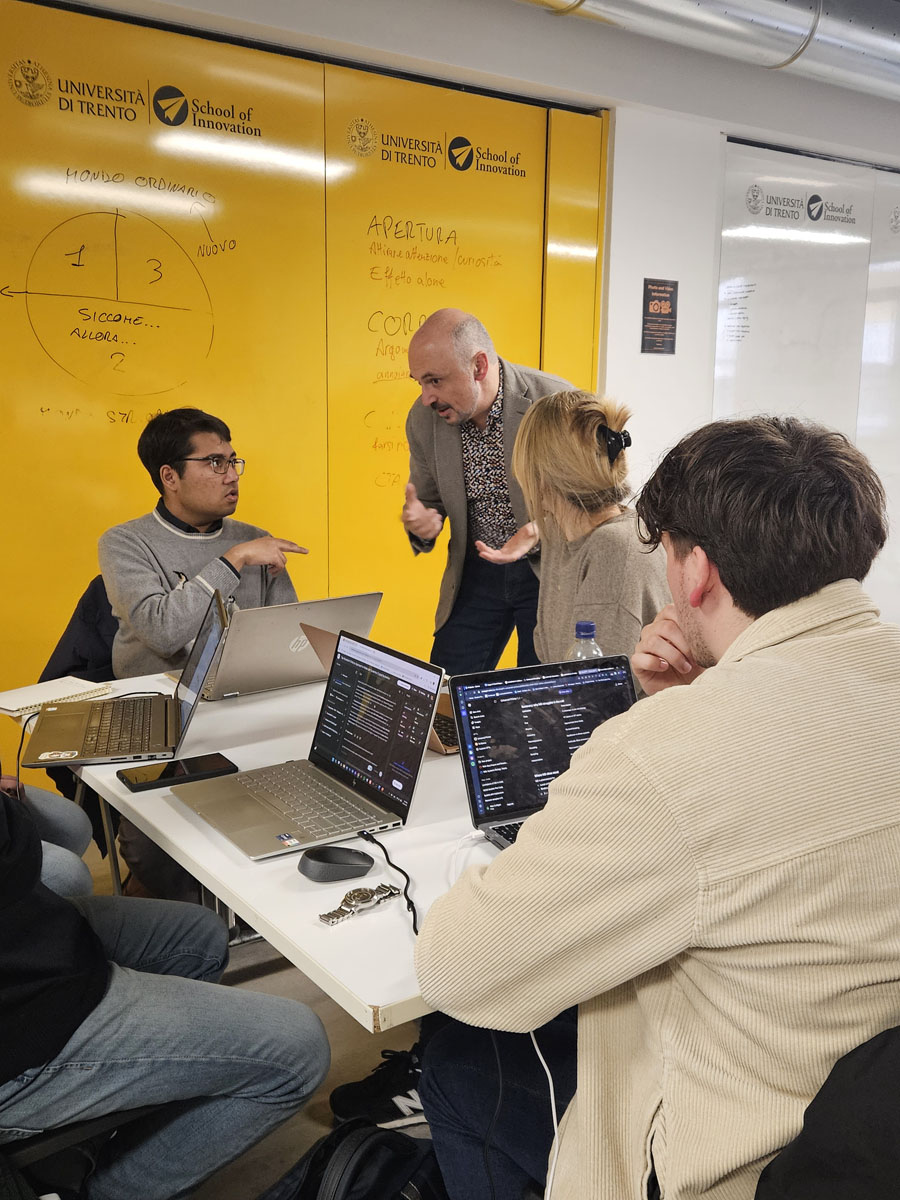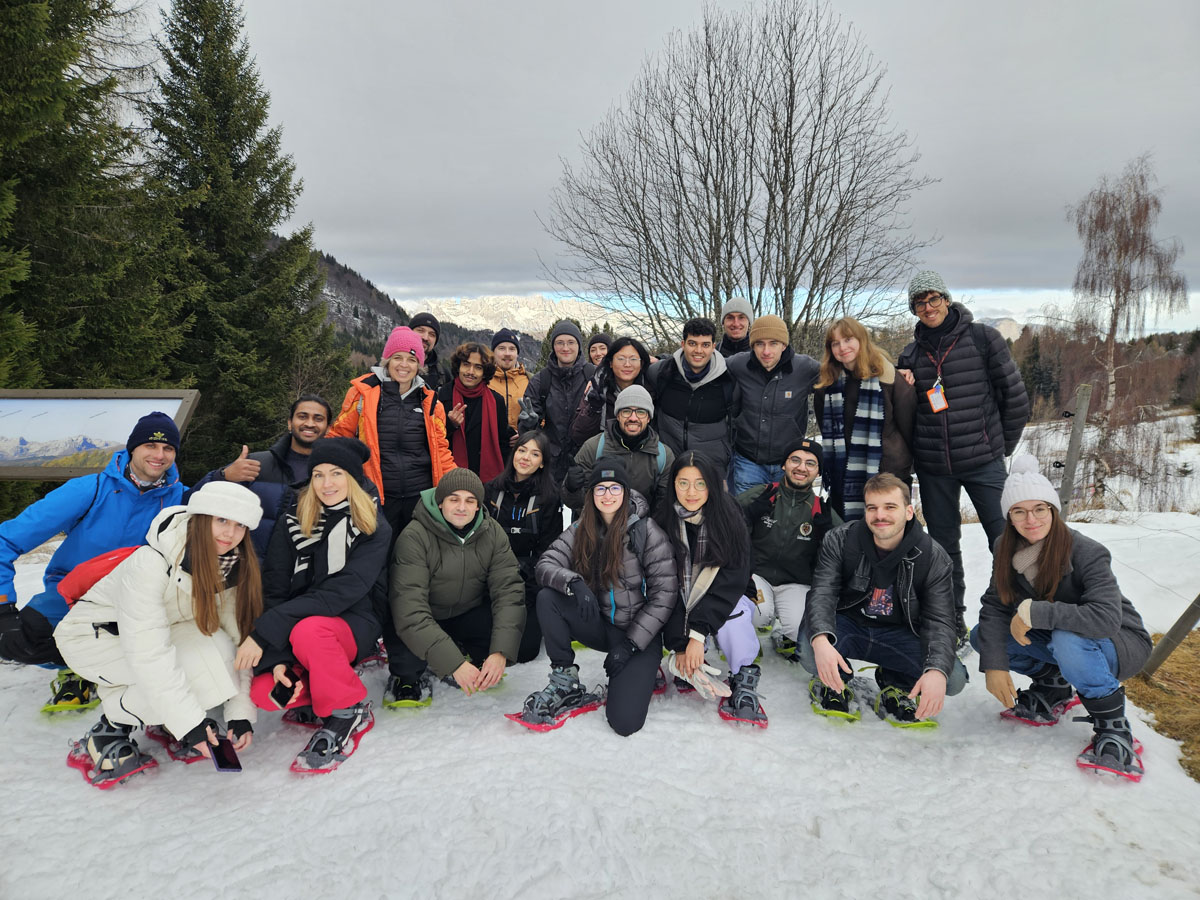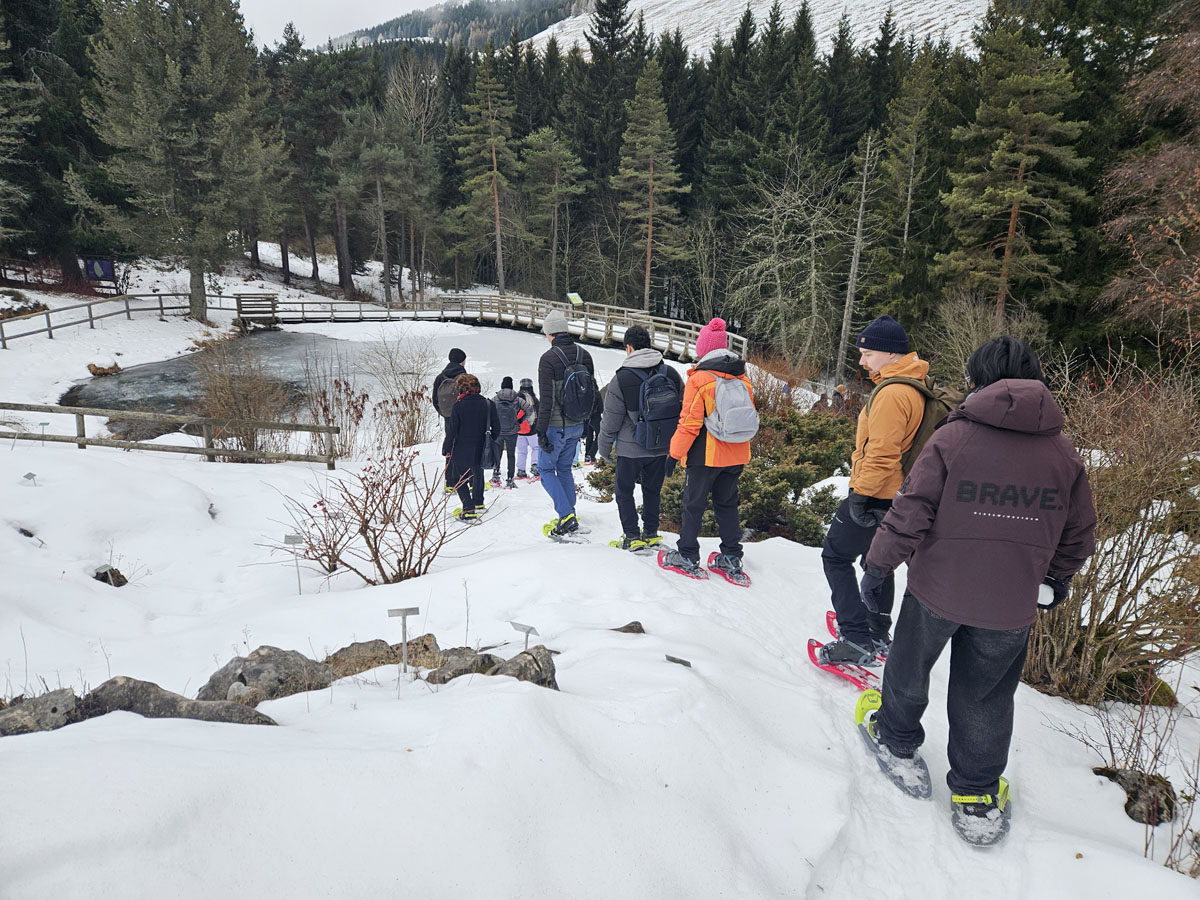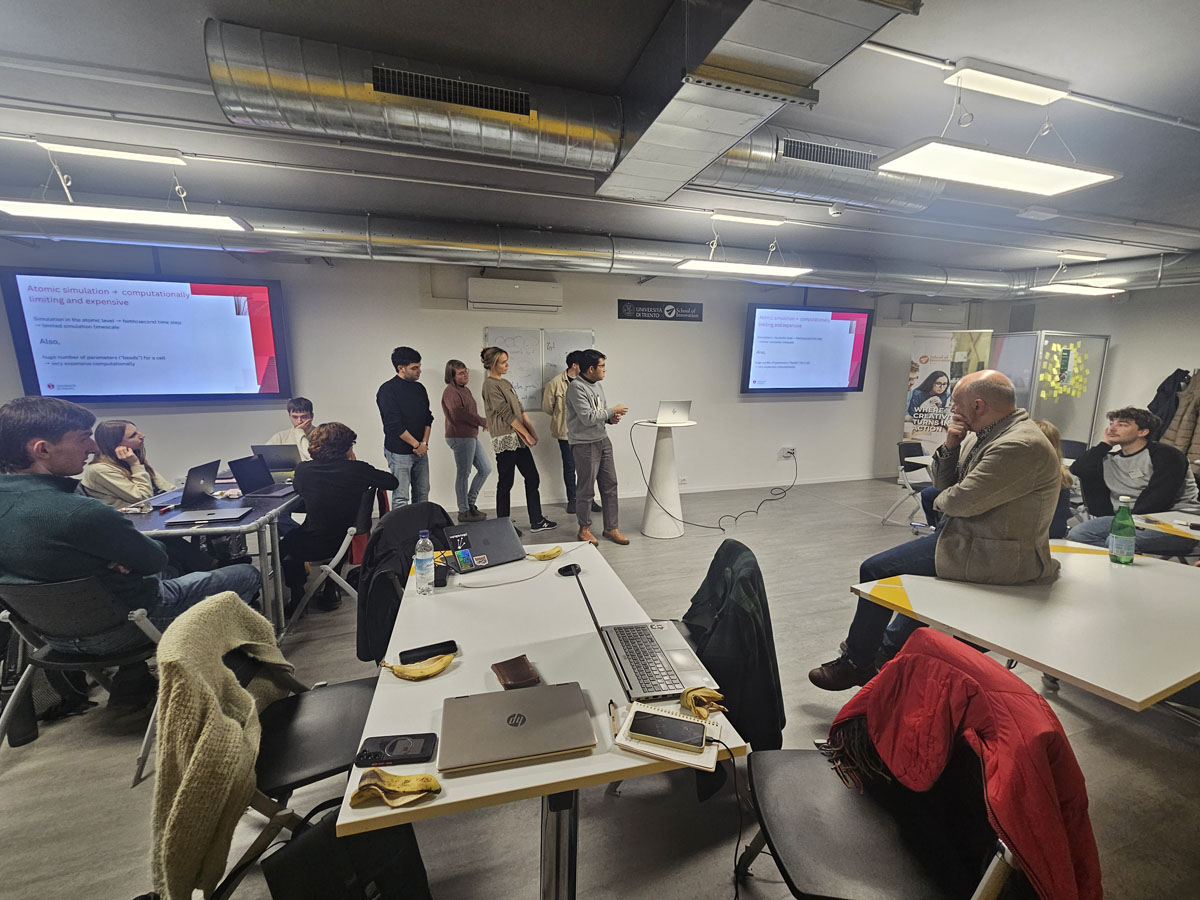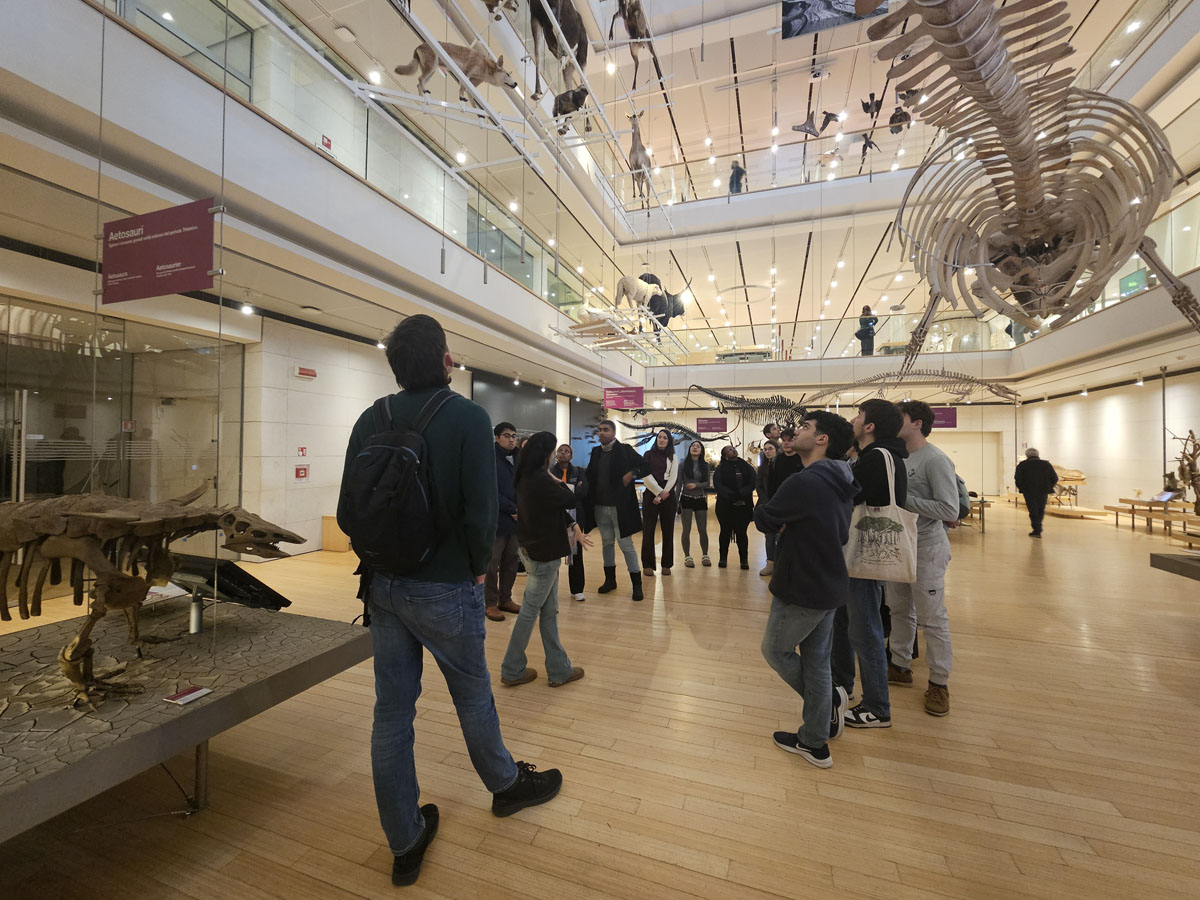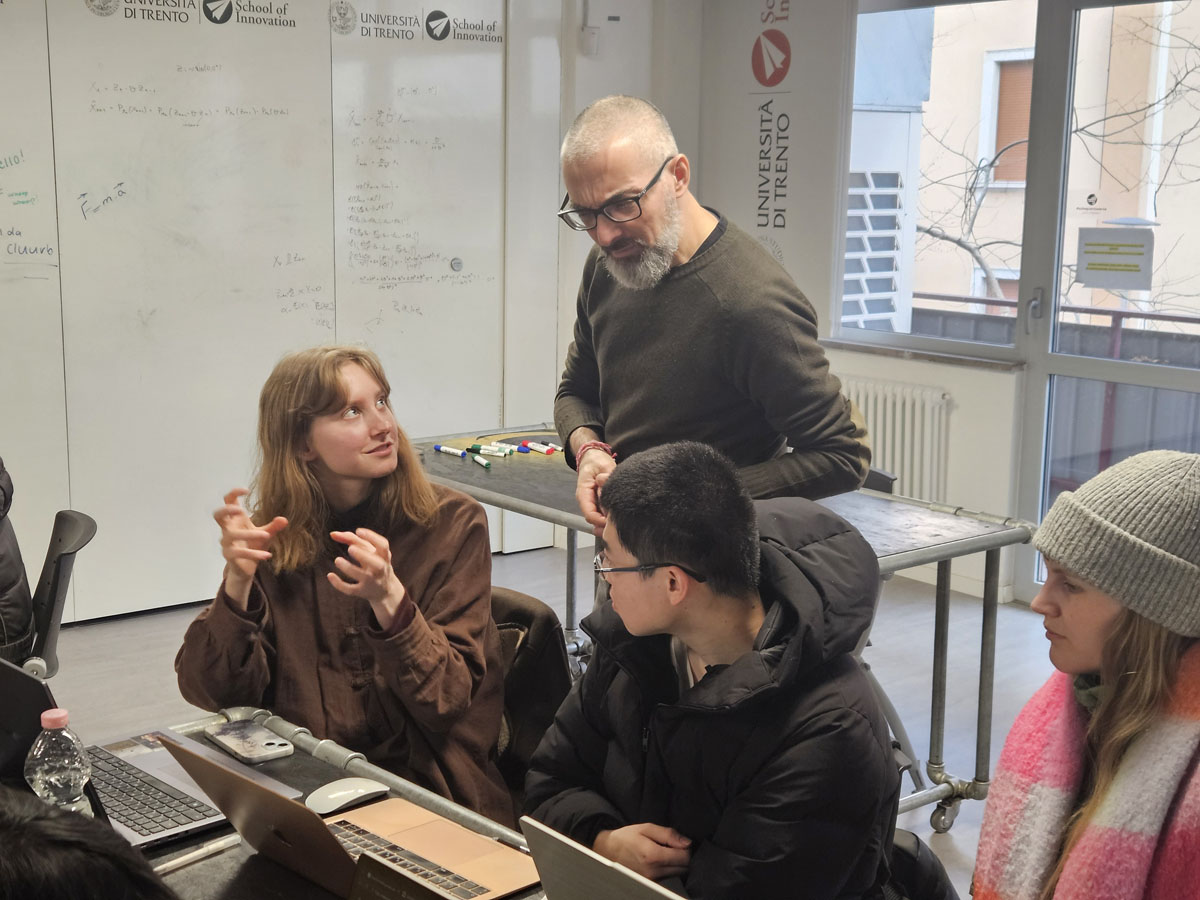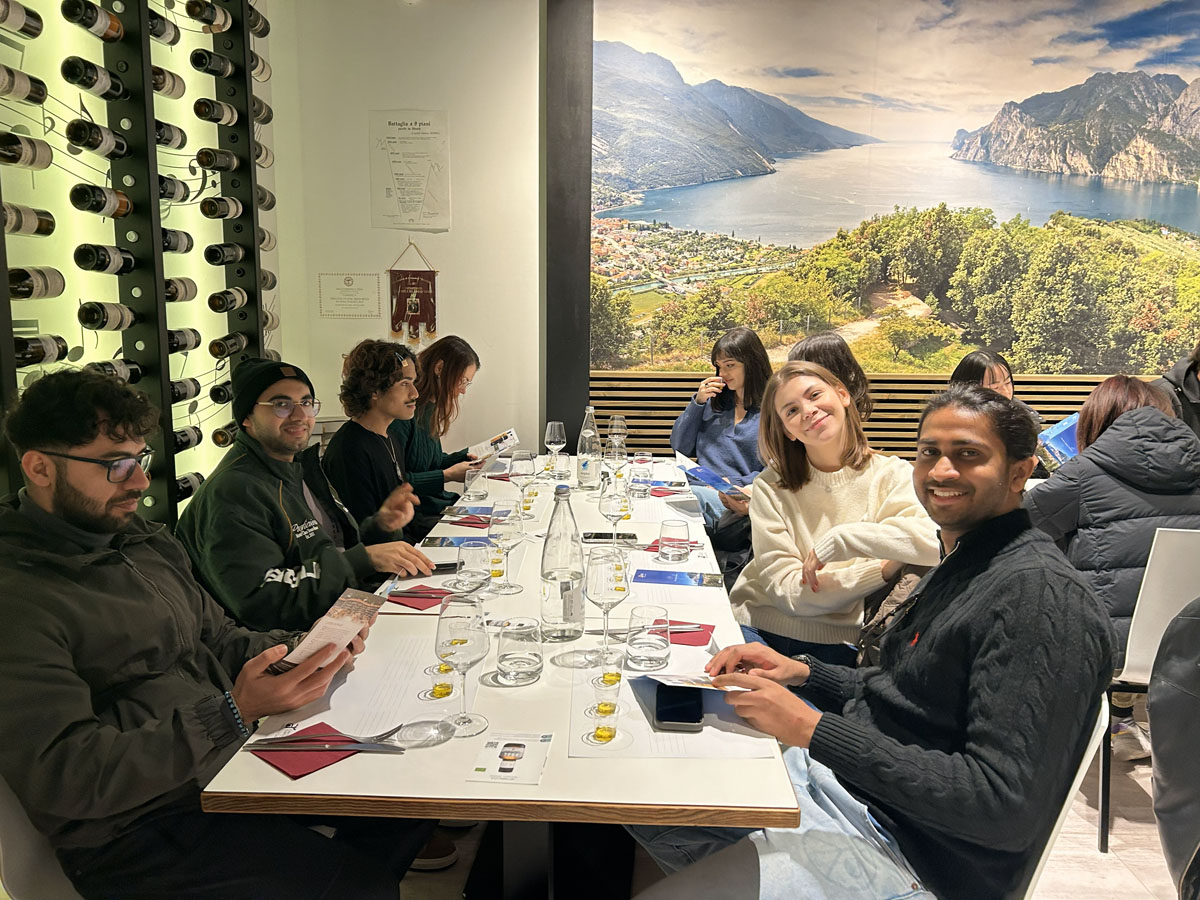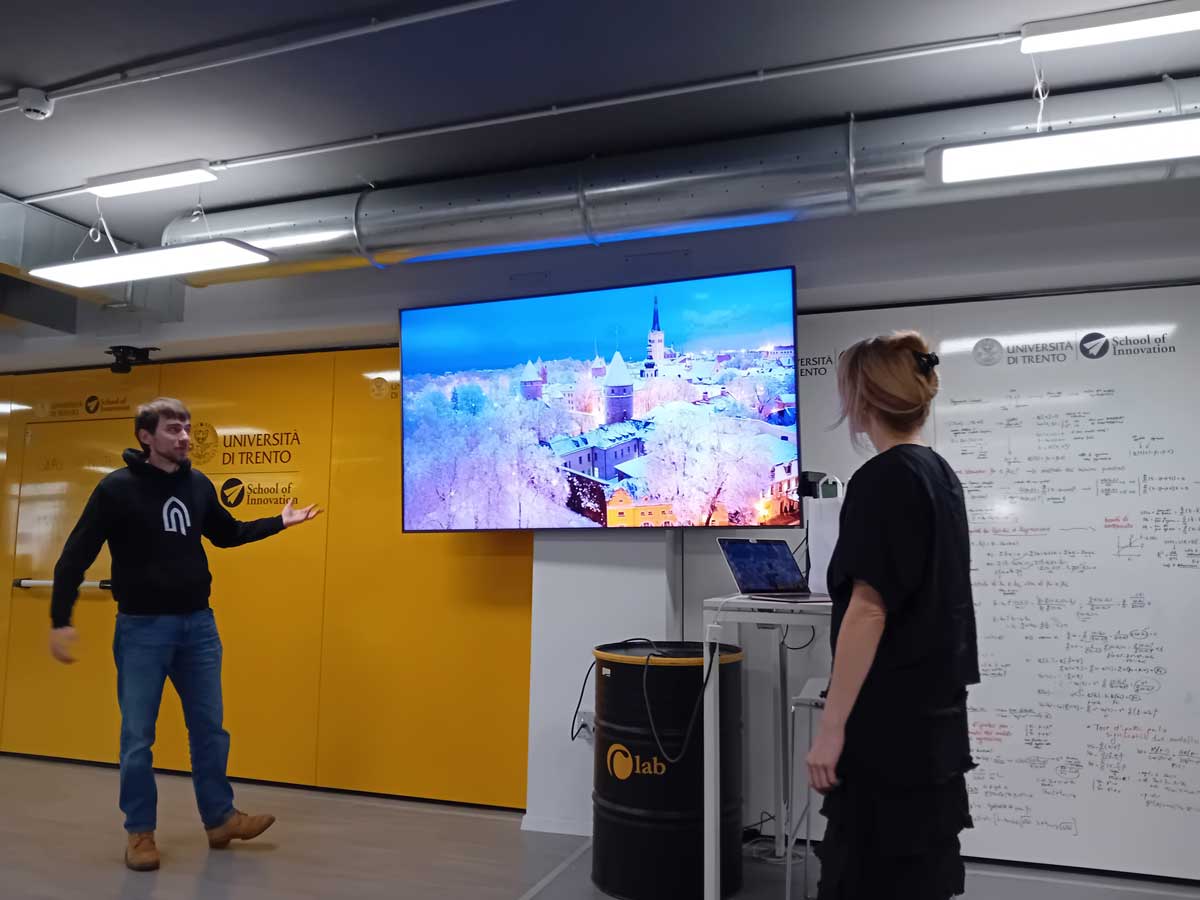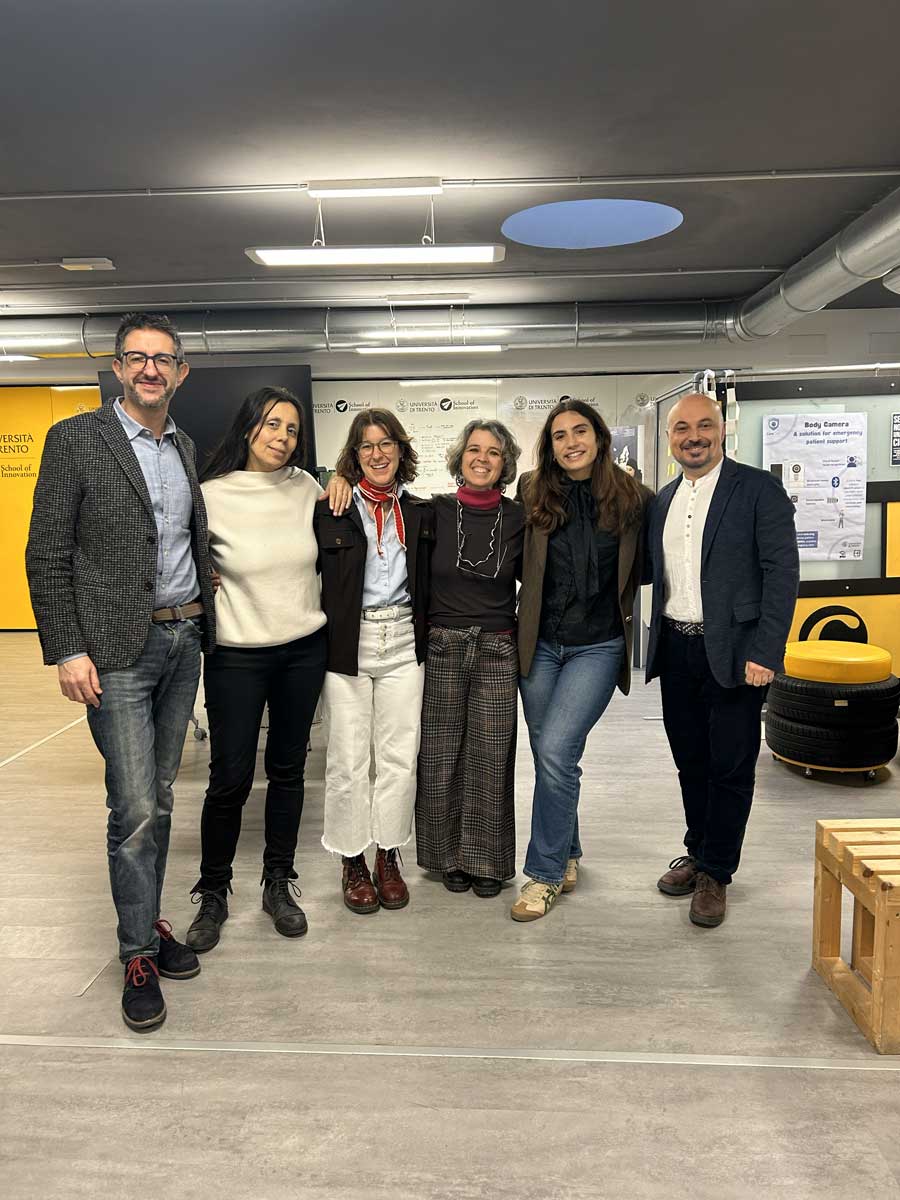
CELL Winter School

- international
Period
2 weeks, from Monday 12 January to Friday 23 January 2026 with students present in Trento, PLUS a compulsory 2-hour follow-up online workshop on 23 February 2026, in two time slots: either 9:00 AM or 3:00 PM (both CEST).
On-Line Information Session
An on-line information session was held on 10 September 2025 at 9.00 AM (CEST), during which students will have the chance to learn more about the Winter School as well as meet the academic coordinators and staff.
Recording of the info session available here - Pass code: 9VSMr7W$
Contents
Understanding the complex behavior of living cells — from molecular assemblies to whole-cell dynamics — increasingly relies on a fruitful interplay between experimental observations, theoretical insight, and computational modeling. In silico approaches allow researchers to simulate and visualize biological structures and processes at resolutions and levels of control that are often inaccessible to direct experimental probing. However, the broad range of spatial and temporal scales involved in cellular phenomena, from angstroms and picoseconds to microns and hours, demands an equally broad set of tools, encompassing diverse experimental techniques, conceptual frameworks, and modeling strategies.
CELL Winter School is an intensive training initiative designed to expose participants to the challenges and opportunities of applying physical methods to living systems. It offers a deeply interdisciplinary environment where early-career scientists can explore how physics — in its experimental, theoretical, and computational forms — contributes to our understanding of biological processes with implications in medicine, biotechnology, and basic science.
The school combines lectures and hands-on sessions on topics ranging from the physical and biochemical organization of the cell to the statistical mechanics underlying cellular processes. Participants will engage with advanced simulation techniques at multiple levels of resolution, from chemically accurate all-atom models to coarse-grained descriptions of large molecular complexes. The curriculum includes focused explorations of current research frontiers, such as the physics of chromatin and the cell nucleus, the biophysics of cell growth and mechanics, and the modeling of visual processing systems as a prototypical example of data-to-model inference. A distinctive feature of the program is the emphasis on medical biophysics, with specific attention to applications like proton therapy, reflecting the active research landscape in Trento.
Teaching is structured around innovative methods, notably Challenge-Based and Problem-Based Learning, which promote active engagement, collaborative problem-solving, and the development of critical thinking skills. Lectures and activities are led by internationally recognized scientists who not only present the state of the art in their fields but also provide participants with the tools and methodologies to begin navigating these research areas themselves.
Set against the spectacular winter backdrop of the Dolomites, CellPhys@TN3 is not only a scientific training opportunity, but also a chance to build lasting connections through international networking, interdisciplinary exchange, and a rich social and outdoor program.
Seminars and hands-on sessions
- Statistical Physics and Theoretical Principles of Cell Biophysics
From thermodynamics to stochastic processes in cellular environments - Experimental Techniques in Cell Physics
Imaging, spectroscopy, micromanipulation and biophysical assays - All-Atom Modelling of Biomolecules
Chemically accurate simulations of proteins and nucleic acids - Multiscale Approaches to Molecular Complexes
Coarse-graining strategies and integrative modeling - Cell Growth and Mechanobiology
Physical principles of cell shape, growth, and mechanical response - Physics of Vision: From Signals to Models
A case study in cellular sensing and data-to-model approaches - Biophysics for Medicine: Proton Therapy and Beyond
Applications of physical methods in cancer treatment and diagnostics
Speakers
Prof. Guido Tiana (Università di Milano la Statale)
Prof. Luca Monticelli (CNRS, Lyon, France)
Prof. Mikko Karttunen (Western University, Canada) - TBC
Prof. Daniele Dell’Orco (Università di Verona, IT)
Prof. Francesco Tommasino (University of Trento)
Workload and Credits
All lectures, seminars and activities are in English.
The program includes approximately 7 hours per day of the activities described above, including visits and social-cultural programs.
All participants will receive a certificate of attendance after satisfactory completion of the in-person part.
Participation in the online session will earn external participants an official UniTrento transcript certifying 6 ECTS with NO evaluation mark.
Participation in all activities included in the program is mandatory and attendance will be tracked daily.
Participant Background
Admission will be open to a maximum of 22 international senior Bachelor’s degree students (who have finished the 2nd year) and all Master’s degree students preferably with (but not limited to) the following backgrounds: Physics, Chemistry, Biology, Mathematics, or interdisciplinary courses including at least one of the former among the primary disciplines.
Participants should be confident in English-language use (B2).
Application Process - applications closed
Starting from now you can apply through online application.
To apply you will first be asked to create a UniTrento guest account. To do so, please see the instructions in the document "How to login to UniTrento application tool".
All students are required to upload their CV, most recent ToR (Transcript of Records), complete identity document, English certificate (if any) and a motivation letter.
The Winter School will take place with a minimum number of 10 participants.
Deadlines
Applications are due by 15 October 2025, noon.
Up to 2 local UniTrento students will be admitted if places are still available. UniTrento students will be awarded a certificate of attendance and may have the chance to recognize part of the activity according to the rules of each study course.
Participation Costs
If you are selected and come from a University Partner of UniTrento, you will receive a fee waiver.
If you come within the Erasmus+ Programme K131 or the ICM K171 Program, you can also apply for a short-term mobility scholarship. Ask your international office for details.
UniTrento organizes and covers the costs of the social-cultural program consisting of:
- a guided visit of the town;
- a welcome coffee and a farewell lunch;
- a one-day and a half-day outdoor activity;
- a guided visit to a museum or other cultural institutions or event.
Participants are responsible for covering the following expenses:
- All meals (including the one during the all-day excursion): approximately from 6 to 9 euros (€) in the university canteen, 15-30 € at a café or restaurant, less if you cook by yourself or with others;
- Housing: approximately 35 €/day in shared accommodation, hints to find one will be sent to prospective participants (on-campus housing is not available);
- Travel;
- Transportation expenses once you arrive at UniTrento and in the surrounding area unless you get from your host the Trentino Guest Card;
- Visa and health insurance, if needed (students living outside the European Union).
Accommodation
All participants are responsible for planning and paying for their own lodging during the School.
Details and possible housing solutions will be sent to applicants.
You are recommended to book in advance since the summer period is quite busy.
Some good reasons to apply
- Engaging lectures and hands-on sessions that combine theory and practice in an interactive way.
- Learn by doing: gain skills to identify the main experimental techniques and modelling strategies to investigate the cell; interact with scientific instruments and software for the visualization and analysis of biomolecular complexes and assemblies.
- Think like a cell: understand how different components of the cell are interconnected, and how physical models allow for quantitative predictions of their behavior.
- Earn 6 ECTS credits through innovative teaching approaches such as Challenge-Based Learning (CBL) and Problem-Based Learning (PBL).
- Collaborate in a truly multidisciplinary environment, where participants and faculty from physics, biology, engineering, and computational sciences work side by side.
- Discuss science with national and international experts, and get feedback on your ideas in an informal and stimulating atmosphere.
- Develop your teamwork and communication skills, essential for a career in research and beyond.
- Outdoor activities and social events to connect with your peers and enjoy a dynamic and inclusive atmosphere.
- Expand your international network, while making meaningful connections for future collaborations or career steps.
- Discover Trentino and the stunning Dolomite mountains, a UNESCO World Heritage site, with the opportunity to relax and recharge in a beautiful natural setting.
Academic Coordinators
Prof. Gianluca Lattanzi, University of Trento
Prof. Daniele Dell’Orco, University of Verona
Contacts
International Relations Division
cellphys@unitn.it
Tel + 39 0461 283224
